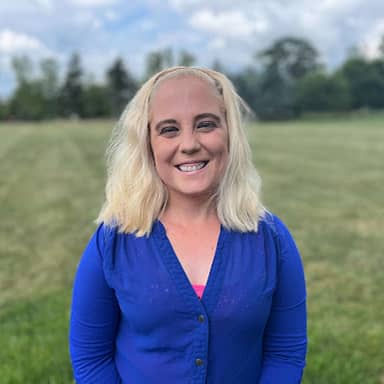Navigating a Temporary Disability: How a Sports Concussion Impacted My Academic Experience
There I was, sitting in my U.S. history class, when suddenly my stomach churned and I was overcome by nausea. In a hurry to get to the bathroom as soon as possible, I leaped out of my seat and bolted out of the classroom. I felt ashamed and humiliated, but I knew that running out of the class wouldn’t be as embarrassing as vomiting in front of the professor and my peers.
After successfully making it to the bathroom, I rested my hands on the walls for balance as another wave of nausea hit me. I knelt on the cold tile floor, pressed my head against the toilet, and prayed the vomit would come easily.
Tears stung my eyes and rolled down my cheeks as the world melted in front of me.
I was suffering from a concussion.
I find that most people don’t seem to take concussions seriously. Concussions are often described as minor or mild, but people need to understand that there is no such thing as a minor or mild concussion. A concussion is irreversible brain damage that can alter one’s academic, athletic, and social life in myriad ways. As awful as a concussion is to experience, they often serve as a crucial reminder that one’s health is always of the utmost importance.
A Surprise Accident
Two weeks earlier, four days before the winter quarter of my first year began, I suffered a concussion at my college diving practice after attempting a twisting dive and pounding my head against the water. The pain seared through my head, hot and blinding, and I instantly knew that I had a concussion.
My coach yelled my name multiple times as I pulled myself out of the pool, but I couldn’t focus on anything except the pain that was radiating through my head. Little did I know that that pain would be the only thing I knew for the next several weeks.
My concussion changed my life. Plagued by headaches, nausea, dizziness, vomiting, and anxiety, I felt out of touch with reality. My friends and teammates were still consumed by their responsibilities and life. Meanwhile, my world had been turned upside down.
I was in a lot of physical pain, but I was a college athlete and had become accustomed to the physical pain of migraines, dizziness, and nausea. My doctor prescribed me anti-nausea medication and gave me a long list of concussion symptoms I might experience.
Concussions don’t just result in symptoms like headaches and dizziness — they also can completely alter peoples’ personalities, lead to mental health conditions, and cause irritability, mood swings, and emotional lability. The combination of these brutal symptoms can make a person feel as if they don’t know who they are. I felt trapped in my mind, with no way to escape the pain that tormented me.
The pain consumed me as soon as I woke up in the morning. I showered and tried to rinse away the headaches and nausea, trying to be a normal college student. I tried to be present in class, but I was mentally and emotionally a million miles away.
Thankfully, my athletic trainers and coaches offered me academic accommodations. My professors were notified of my brain injury and given a list of accommodations that could make the class easier for me. They kept the lights off as I was very sensitive to light. They allowed me to leave class whenever I got bouts of nausea and my headaches became too severe. They also gave me extensions on all my class assignments.
These accommodations helped my brain heal faster, and they also helped me adjust to the reality of living with a traumatic brain injury. I felt supported in my need to prioritize rest, ease, and well-being through my healing process, which I desperately needed. My concussion created stressful circumstances for me, but I wasn’t afflicted by relentless stress and anxiety. I knew my professors would extend grace and empathy to me, no matter how much I struggled.

My New Reality
Despite the help and care I received, I couldn’t help but struggle anyways. Although I got extensions on assignments, I still had to complete them at some point. I had to attend class to the best of my abilities, or else I wouldn’t learn the material that would be on the exams.
Over the first few days of my winter quarter, the stress caught up to me, and I found myself crying for hours about an advanced literature class I was in. The class required approximately eighty pages of reading per night, and my brain simply couldn’t handle the cognitive demands of processing words and making meaning out of letters. My brain felt foggy.
As an English major, I had always been an avid reader, but now I couldn’t do one of the most simple things I’d always been able to do — read. Words blurred together on the pages. I tried my best to dissect the most important words in the sentences and construct meaning out of the seemingly foreign words, but my brain was exhausted by that process. I didn’t have any energy left to comprehend the meaning of the entire passage.
With the encouragement of my academic advisor, family, and friends, I ended up dropping the literature class after two days. I switched to a health psychology class that was a slower pace and less reading intensive.
Although I knew it was the best decision for my health, I couldn’t help but feel like a failure. A part of me felt like I was simply giving up and being lazy, even though I knew that pushing myself to read nearly one hundred pages a day would just prolong my brain’s recovery.
While I was concussed, I was lucky to just be able to sit in the classroom, even if my mind was a million miles away from my professors’ lectures. My concentration often drifted, and I would look around the classroom at my classmates, wondering if any of them were fighting invisible battles that no one else knew about like me. I wondered if anyone else had a concussion or a disability that hurt their participation or concentration. Fortunately, I healed from my concussion within three weeks. That’s not to say my concussion didn’t change me, because it did. I still struggle with headaches and concentration sometimes. I need more sleep to be able to function than before. I can’t pull all-nighters anymore, which is something that many students at Kalamazoo love to romanticize. Staring at screens and sitting through hour-long lectures demands more focus from me than it did before. However, I’ve been able to adjust to my new reality. Not everyone is so lucky. Some students struggle with memory loss, anxiety, and concentration issues and are just expected to work harder to keep up. They’re embroiled in a constant game of chase with their peers and are subjected to harsh expectations that are often not achievable. Through my concussion, I stumbled upon a newfound appreciation for my classmates. I realized that everyone has their silent struggles. I realized that receiving a top-tier grade on a paper or an exam is not all there is to life. I realized that learning should be embraced with a growth mindset instead of a perfectionist mindset. Most importantly, I learned that asking for help is okay — support often makes you healthier and stronger. I am a senior English and psychology double major at Kalamazoo College. I’m on the varsity diving team and have received all-conference honors. Outside of diving, I’m an active member in the swim lesson program Swim for Success. I also coach diving lessons, and I’m a reading and writing tutor for elementary school kids. Many students feel pressure to pursue a particular major. One student shares his story about how the wrong major led him down a path to depression. by Connor James Updated May 19, 2023Considering my academics from this new perspective was very new to me. My concussion was a reminder that ultimately, my health mattered more than a grade or test score. Life was bigger than academic achievements. I needed sleep, I needed to surround myself with supportive friends, and I needed to find hobbies, like baking and drawing, that brought me happiness and peace.
The Healing Process
Meet the Student:

Explore More College Resources

Students Speak: How the Wrong College Major Caused Me to Spiral Into Depression




